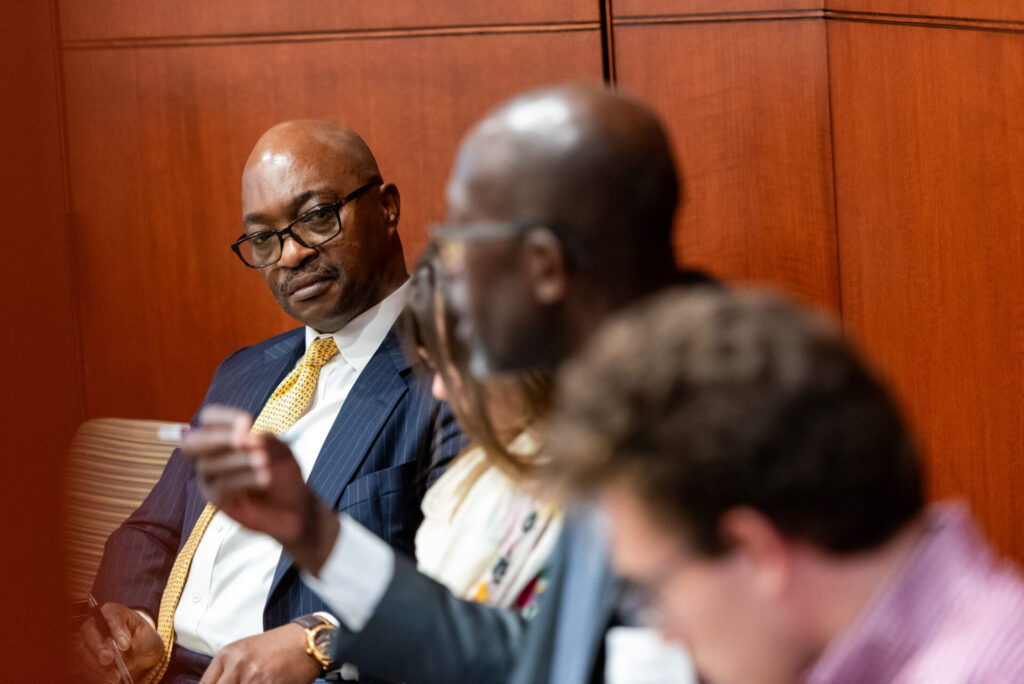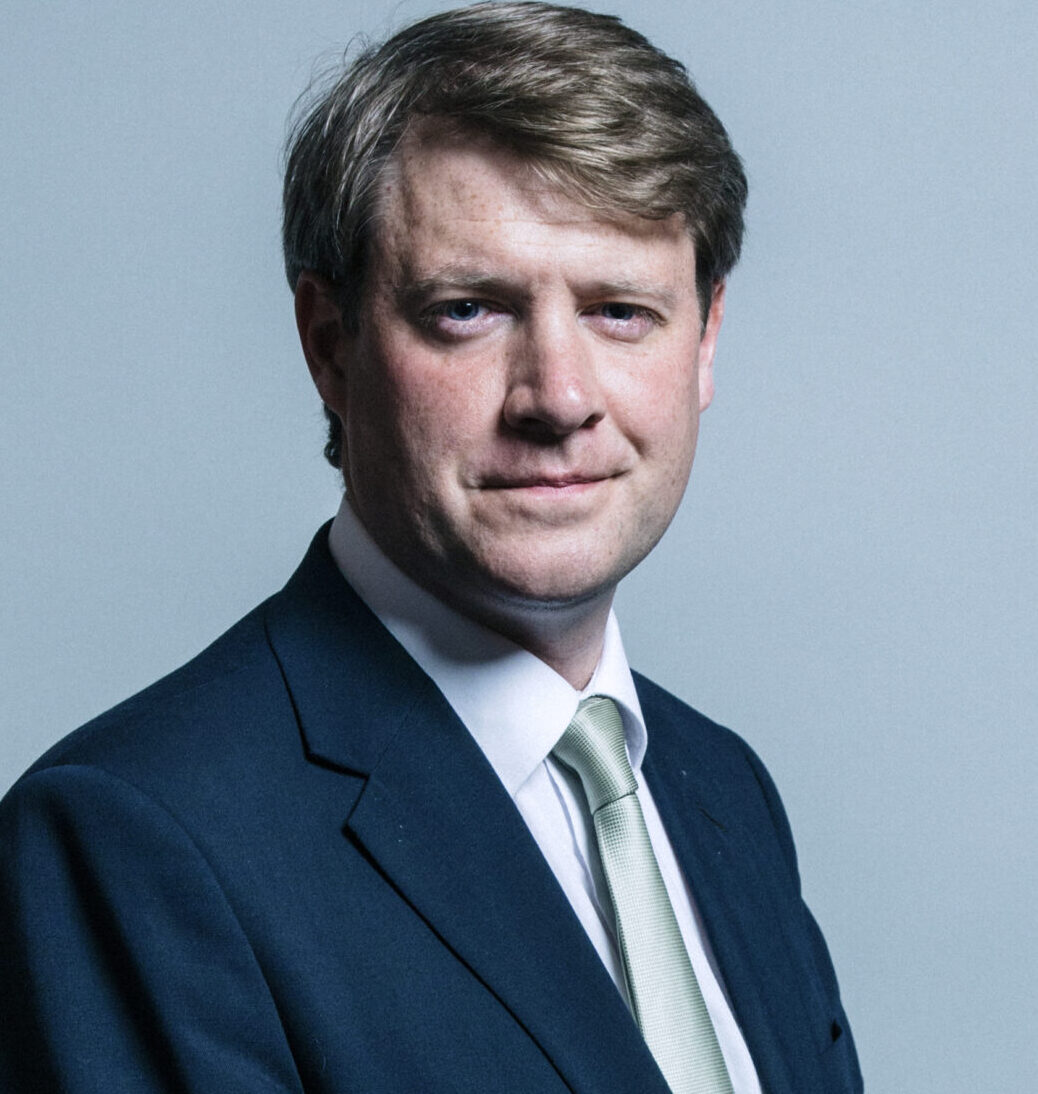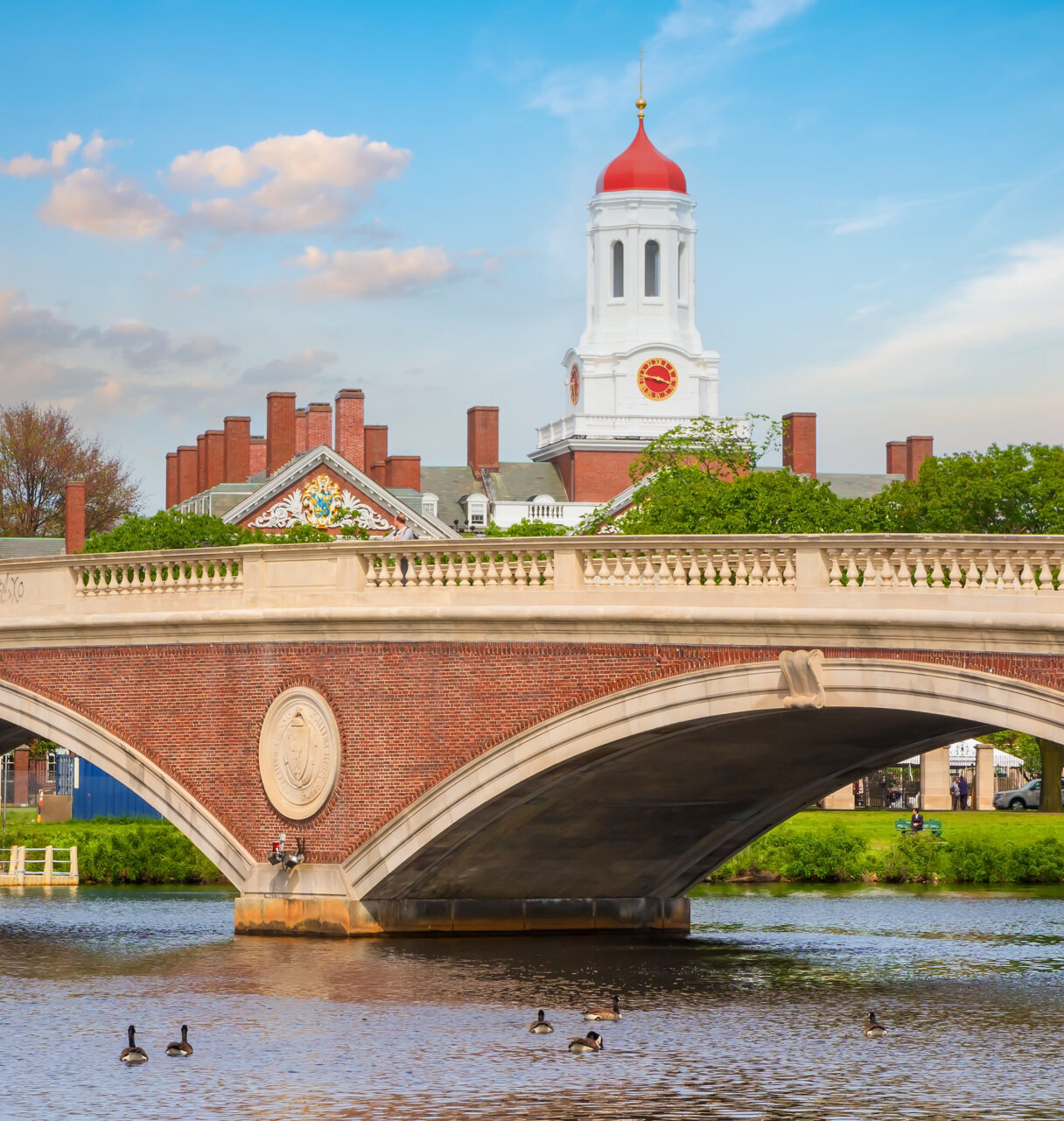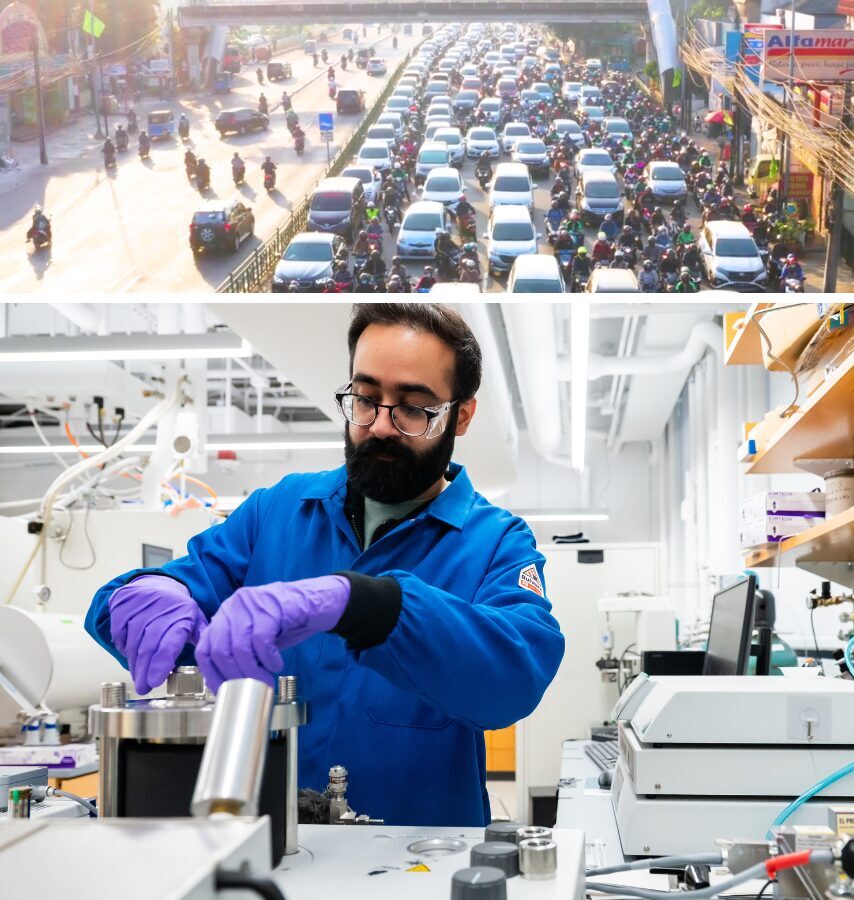Researchers from Global South probe climate adaptation strategies
In northern Ghana, farmers have begun replacing their millet and sorghum crops. Maize grows faster and can be harvested before the now-annual floods caused by an overflowing dam upstream in Burkina Faso.
In Gujarat, India, residents of informal settlements are painting their roofs white to reflect the blazing sun.
While the rich world debates how to mitigate climate change, the poorest of the world’s poor – those who have contributed the least to the crisis – already acutely feel the effects. Deadly heatwaves. Urban floods. Coastal erosion.
Local adaptation strategies in South Asia and the Gulf of Guinea were the focus of a recent three-day workshop at Harvard University that brought together academics, government officials and civil society leaders to discuss joint research and explore shared threats and challenges.
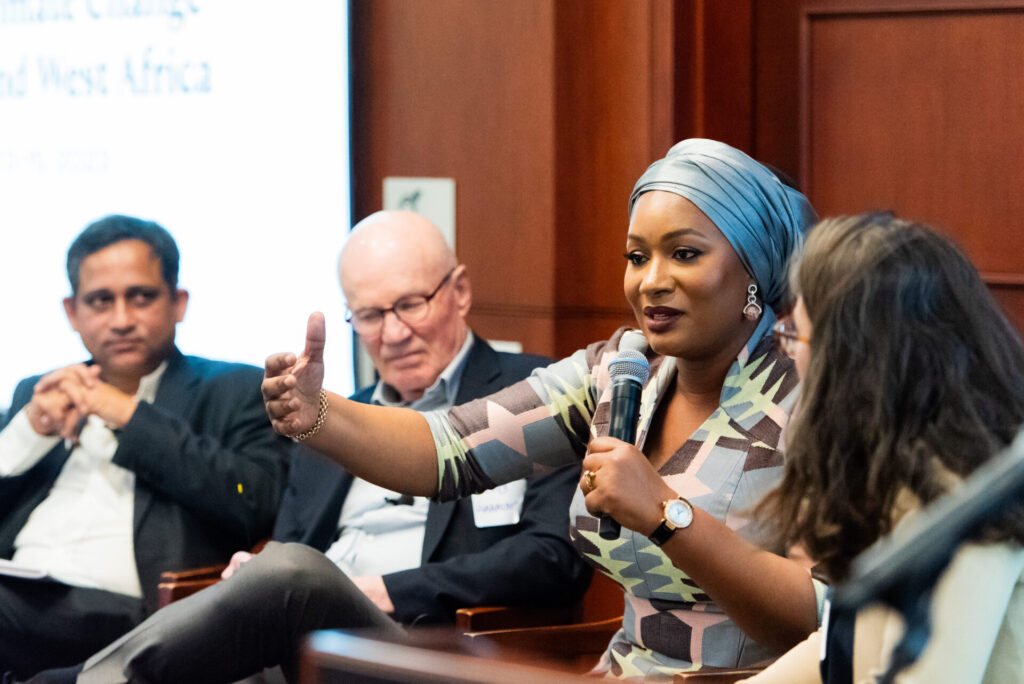
Participants – members of research clusters sponsored by the Salata Institute for Climate and Sustainability to investigate climate adaptation in these regions – conceded that adaptation is often the only viable response to a crisis that will not go away.
“Even if we cut emissions and got to net zero today, hundreds of millions of people would continue to face massive repercussions for the foreseeable future,” Satchit Balsari, assistant professor at Harvard’s medical and public health schools, said at the workshop, which was co-sponsored by the Lakshmi Mittal and Family South Asia Institute, the FXB Center for Health and Human Rights, and the Stanley Center for Peace and Security.
Case in point: In Lagos, a city of 21 million that is expected to double in population by 2050, seawalls built to protect wealthy areas are causing informal beachfront settlements to be washed into the sea, explained Joseph Onoja, the head of the Nigerian Conservation Foundation. “When seawalls are built in one place, they can cause circular water flows that rapidly erode other areas,” Onoja said.
Rising seas – 1 meter is likely by the end of the century – will make the problem worse, but local governments lack the capacity to plan that far ahead, leading Jerry Mitrovica, the Frank B. Baird, Jr., Professor of Science at Harvard University, to call for scientists to produce more granular data: “For most of the communities were talking about, projections to the year 2100 are just too far in advance. We really need projections on a decadal scale.”
To document the brisk change, Nigerian photographer Adolphus Opara is training local women to photograph flooding in their communities. Too often floods are described in impersonal numbers: dead, evacuated. “I wanted to put a face on these people. Some live in perpetual flood. Their schools are closed; reptiles are moving into their homes,” Opara said, showing a photo of a young boy hoisting a meter-plus Nile monitor lizard by the tail. Parts of Lagos are sinking, a problem hastened by unchecked development and the plastic trash clogging drains.
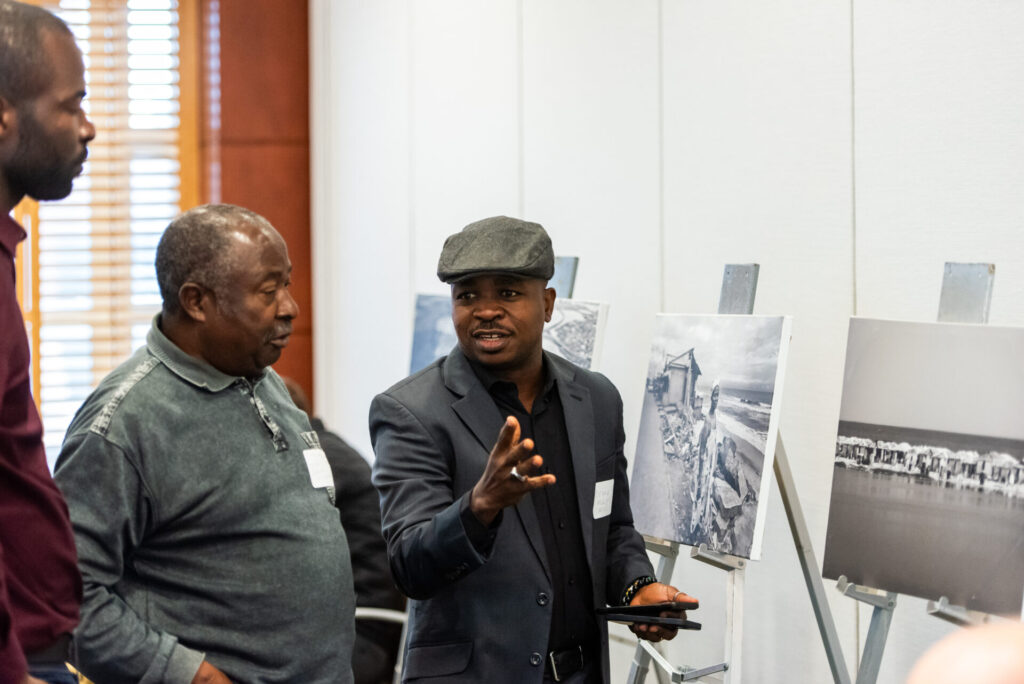
Addressing these afflictions “is going to take something unprecedented in scale if not unprecedented in concept,” said Rob Paarlberg, an Associate in the Sustainability Science Program at the Harvard Kennedy School, who called on international donors to plan longer term and for local governments to take ownership of the problem.
The absence of government is acute, said Ibidun Adelekan, Professor of Geography at the University of Ibadan and one of the lead authors of the Africa chapter of the latest report by the UN Intergovernmental Panel on Climate Change.
“In cities along the coast of West Africa, I find that many people who work in planning do not make use of climate scenarios,” she said. “Development is not done with respect to what the climate will be in the next 10, 20 or 30 years.”
“There is still a gap between science and policy; not because the science doesn’t exist, but the problem is how to get policy to accept the science,” explained Peter Dery, the Director of Environment at the Ministry of Environment, Science, Technology, and Innovation in Ghana. “Once we solve a problem in one community, our lack of planning means it just moves to another. That’s the kind of approach we’re using. So, you tend to have more cost, and then we come back to complain about finance.”
Even large infrastructure investments can fall victim to such a “scattershot” approach, warned Aditya Pillai, Fellow and Coordinator of the Adaptation and Resilience Initiative at the Sustainable Futures Collaborative in Delhi, who has studied the political economy of seawalls on the west coast of India.
Too often, construction is performative, done to meet the needs of politicians and electoral cycles, Pillai said. “Everyone loves building a seawall because it makes them think they are doing something. It is psychological.” Yet a seawall can be maladaptive if not built as part of a larger strategy. “Election cycles are short, but adaptation is a long game.”
Pillai argued for “something more rational and systematic,” but recognized the demands of the political calendar. He described speaking with a district council member who told him, “With an election every five years, I don’t have the luxury of thinking about 2050.”
Democratizing advocacy
Faced with such challenges, policymakers and scientists must be more holistic, argued Sabina Rashid, Dean of the James P. Grant School of Public Health at BRAC University in Dhaka. For the world’s poorest, climate is simply one calamity stacked on top of many.
“Climate change is a new layer of crisis. We need to look at the interconnectedness of health, climate change, job loss, food insecurity, endemic poverty,” she said, lamenting that a “top-down approach” to combating these scourges objectifies the most vulnerable.
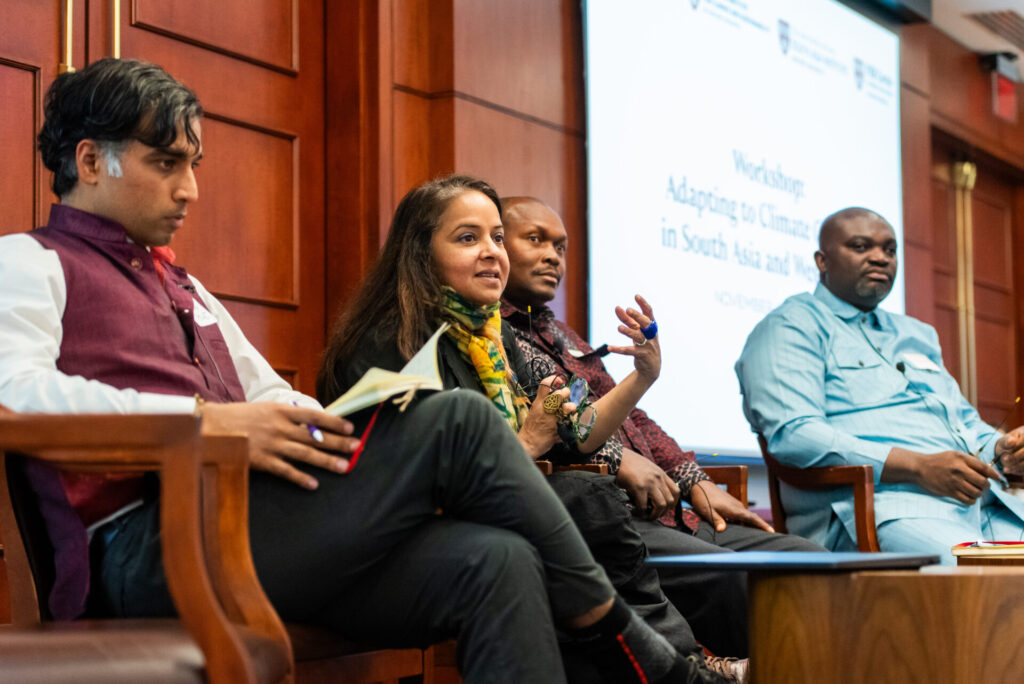
To bring affected communities into the conversation, researchers must democratize access to their tools to allow people to advocate for themselves, said Caroline Buckee, Professor of Epidemiology at Harvard T.H. Chan School of Public Health and Principal Investigator of the South Asia climate adaptation research cluster.
Buckee is one of the directors of Climateverse, an accessible data repository that offers processed, organized and easy-to-use datasets for climate research, helping identify communities most prone to extreme weather.
With artificial intelligence tools, Climateverse allows anyone with access to a computer to interrogate datasets “for their own advocacy purposes, so that they can have conversations with policymakers and experts, and they know what they’re talking about,” said Buckee. “People shouldn’t need a PhD and a postdoc in climate science to ask questions relevant for their communities.”
Just as non-specialists must be empowered to advocate for themselves, government officials must be engaged and trained, said Emmanuel Akyeampong, the Ellen Gurney Professor of History and Professor of African and African American Studies at Harvard and Principal Investigator of the West Africa climate adaptation research cluster: “When it comes to climate change and adaptation, unfortunately, our governments see this as something the West will help us do. So, our cluster is working not only with universities in West Africa, but also government institutions. We are developing our research project in conversation with government folks, so that they are part of his research. And as we look at the results, we can package them in ways that are accessible to them.”
